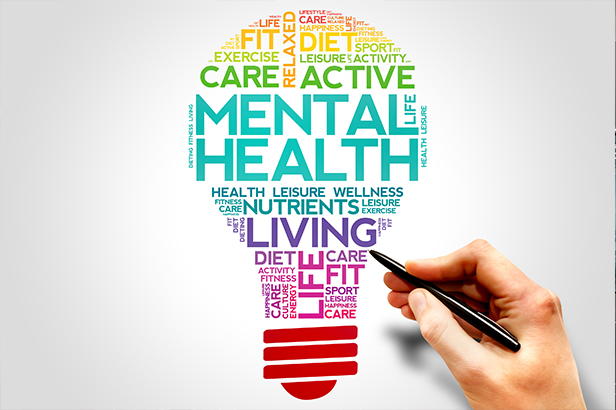Mental health and well-being are critical components of overall health. Often neglected or misunderstood, mental health influences how we think, feel, and act. It also determines how we handle stress, relate to others, and make decisions. The good news is that, just like physical health, mental health can be improved and maintained with intentional effort. In today’s fast-paced world, it is more important than ever to prioritize mental health. From self-care practices to lifestyle changes, this article explores ways you can improve your mental health and well-being.
1. Understanding Mental Health and Well-being
Before diving into the strategies, it’s important to understand what mental health and well-being entail. Mental health refers to emotional, psychological, and social well-being. It affects how individuals think, feel, and act in their daily lives. A person with good mental health can cope with the stresses of life, work productively, and contribute positively to society.
Well-being, on the other hand, is broader and includes emotional well-being, psychological well-being, and social well-being. It involves how satisfied and fulfilled a person feels in life, not just in terms of mood, but in terms of overall happiness and life satisfaction.
2. Ways to Improve Your Mental Health and Well-being
2.1 Prioritize Self-Care
Self-care is a cornerstone of mental well-being. It encompasses activities and practices that promote good physical, emotional, and psychological health. When you engage in self-care, you are investing in your ability to cope with stress and maintain balance in your life.
- Physical self-care: Exercise regularly, get enough sleep, and eat a balanced diet. Physical health has a direct impact on mental health, so nurturing your body is vital for mental well-being.
- Mental self-care: Take time to unwind and relax. Engage in hobbies that bring you joy, read a book, or try journaling to express your thoughts and emotions.
- Emotional self-care: Learn to say no when you need to, practice self-compassion, and surround yourself with positive and supportive people. Managing emotional boundaries helps prevent burnout and stress.
2.2 Practice Mindfulness and Meditation
Mindfulness is the practice of being present in the moment, free from judgment. It encourages awareness of your thoughts and feelings without getting caught up in them. Mindfulness practices, such as meditation, deep breathing, and yoga, can help reduce stress and anxiety, improve concentration, and enhance emotional resilience.
Studies have shown that practicing mindfulness can rewire the brain to be more resilient to stress. It can help you regulate emotions, reduce negative thinking, and increase self-awareness, which are all essential for mental well-being.
2.3 Build Strong Social Connections
Humans are social beings, and positive relationships play a critical role in mental health. Strong social support networks provide emotional comfort, reduce feelings of isolation, and encourage a sense of belonging.
- Nurture relationships with family and friends, and make time for socializing, even if it’s through virtual channels when necessary.
- Seek professional support from therapists or counselors if you’re struggling with emotional challenges. Talking about your feelings in a safe, nonjudgmental environment can be incredibly beneficial.
- Volunteer or engage in community activities to foster a sense of connection. Helping others and being part of something bigger can boost your sense of purpose and fulfillment.
2.4 Manage Stress Effectively
Chronic stress is a major contributor to mental health issues like anxiety, depression, and burnout. Learning how to manage stress is essential for preserving mental health.
- Develop stress-relief strategies like regular exercise, relaxation techniques (deep breathing, progressive muscle relaxation), or spending time outdoors in nature.
- Time management can also play a significant role in reducing stress. Prioritize tasks, set realistic goals, and break large projects into manageable steps to avoid feeling overwhelmed.
- Laugh more: Laughter is a powerful stress reliever. Find humor in everyday situations and embrace activities that make you laugh.
2.5 Get Active and Exercise Regularly
Exercise is one of the most effective ways to improve mental health. Physical activity increases the release of neurotransmitters, such as endorphins and serotonin, which are known to enhance mood and reduce feelings of anxiety and depression.
- Find an exercise routine that works for you. It doesn’t have to be intense—walking, yoga, swimming, or dancing can all provide mental health benefits.
- Make exercise a habit. Consistent movement can provide long-term benefits for both your body and mind.
2.6 Get Enough Sleep
Sleep is directly linked to mental health. Poor sleep can lead to irritability, emotional instability, and increased stress. In contrast, adequate sleep enhances mood, concentration, and decision-making abilities.
- Establish a healthy sleep routine by going to bed and waking up at the same time each day. Avoid stimulants like caffeine and electronics before bedtime to improve the quality of your sleep.
- Create a calming sleep environment with comfortable bedding and a quiet, dark room to ensure you get restful sleep.
2.7 Seek Professional Help When Needed
Sometimes, the challenges to your mental health may require professional intervention. Seeking help from a mental health professional is an essential step toward improving well-being, especially when you’re dealing with conditions like anxiety, depression, or trauma.
- Therapy: Cognitive-behavioral therapy (CBT) and other therapeutic methods can help you understand and manage your thoughts, feelings, and behaviors more effectively.
- Medication: If necessary, medications prescribed by a healthcare provider can be effective in managing conditions such as depression, anxiety, or mood disorders.
3. The Importance of a Balanced Lifestyle
A balanced lifestyle—one that includes healthy habits, time for work and relaxation, and opportunities for social interaction—contributes significantly to mental well-being. Strive to find equilibrium in your daily routine to support your emotional and psychological health.
- Set boundaries: Learning when to say no and when to ask for help is crucial for maintaining mental health. Overcommitting can lead to burnout and stress.
- Pursue a hobby: Whether it’s painting, hiking, or knitting, engaging in creative or recreational activities allows you to unwind and connect with yourself outside of work and responsibilities.
- Practice gratitude: Start or end your day by listing things you are grateful for. Gratitude has been linked to increased levels of happiness, emotional stability, and resilience.
4. 7 FAQs About Improving Mental Health and Well-being
1. How can I manage anxiety on a daily basis?
- Practice deep breathing, mindfulness, and meditation techniques. Regular physical activity and proper sleep also help in managing anxiety.
2. Can diet affect mental health?
- Yes, nutrition plays a significant role in mental health. A balanced diet rich in fruits, vegetables, lean proteins, and healthy fats can support mood regulation and cognitive function.
3. How can I boost my mood without using medication?
- Regular exercise, maintaining social connections, practicing mindfulness, and getting enough sleep can naturally boost mood and reduce stress.
4. What can I do if I feel overwhelmed with work or life responsibilities?
- Break tasks into manageable pieces, delegate when possible, and practice time management strategies. Also, ask for support from others and take breaks to recharge.
5. How can I overcome negative thinking patterns?
- Cognitive-behavioral techniques, such as identifying and challenging negative thoughts, can help break the cycle of negative thinking.
6. Should I seek professional help if I feel down sometimes?
- If feelings of sadness, hopelessness, or anxiety persist and affect your ability to function, it’s essential to seek professional help for guidance and support.
7. Is it normal to feel stressed or anxious at times?
- Yes, stress and anxiety are common human experiences. However, learning how to manage them effectively is key to maintaining mental health.
5. Conclusion
Improving mental health and well-being is an ongoing process that requires intentional effort and commitment. By prioritizing self-care, managing stress, building strong relationships, and maintaining a balanced lifestyle, you can significantly enhance your mental health. Remember, seeking professional help is always an option, and it’s important to take proactive steps toward better mental well-being.
Taking care of your mental health is not a one-time task but an ongoing journey. Small changes, such as practicing mindfulness, staying physically active, and building supportive relationships, can create a lasting positive impact on your emotional and psychological health.
Key Takeaways
- Prioritize self-care: Engage in practices that support both physical and emotional health, such as regular exercise, healthy eating, and relaxation techniques.
- Practice mindfulness and meditation: These techniques help reduce stress, improve emotional regulation, and enhance self-awareness.
- Build and maintain strong social connections: Having a support network provides emotional comfort, reduces isolation, and encourages positive mental well-being.
- Seek professional help when needed: Therapy or counseling can help you navigate mental health challenges, and medication may be necessary for managing certain conditions.
- Adopt a balanced lifestyle: Incorporate time for work, rest, play, and self-care into your routine to ensure mental well-being.
By embracing these strategies, you can improve your mental health and live a more fulfilling life.




